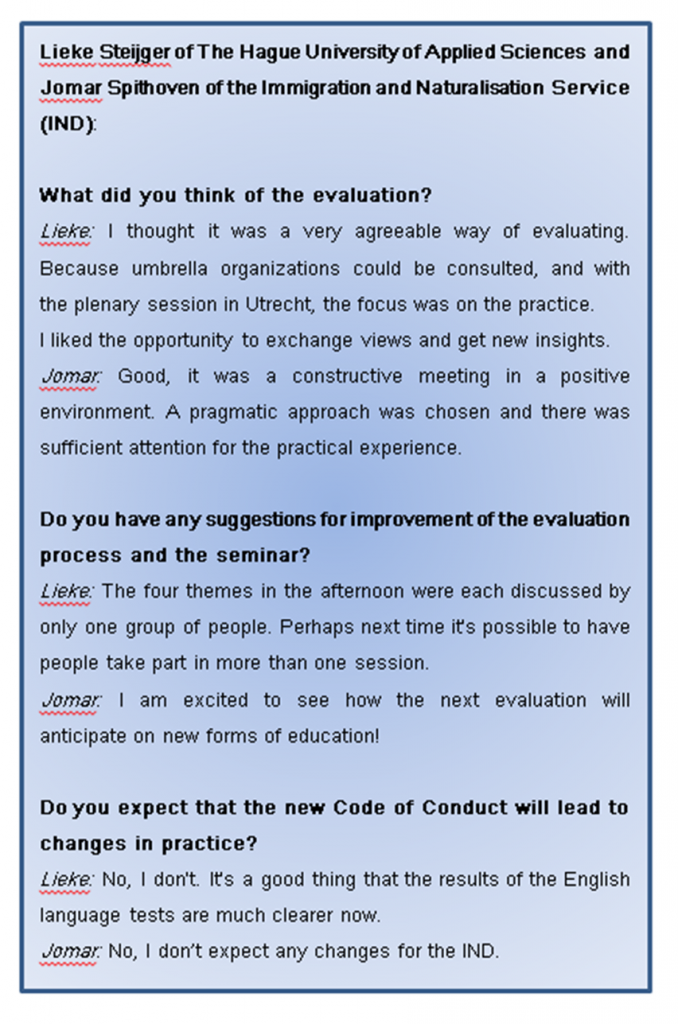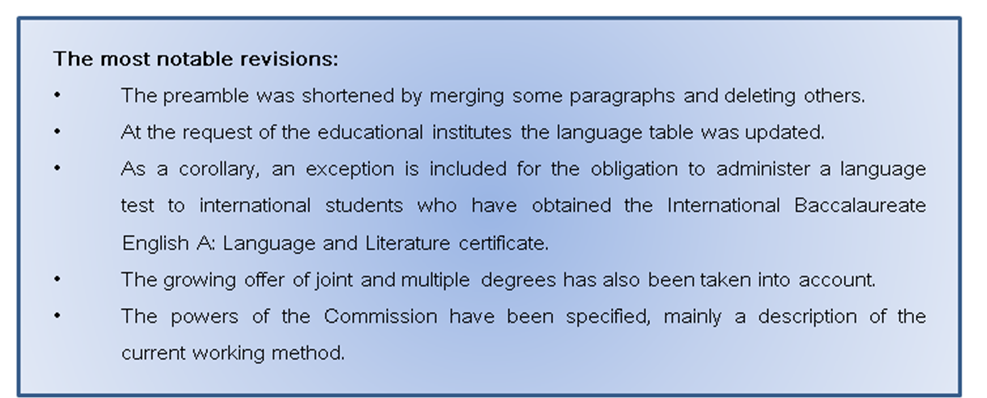In the beginning of 2016, the National Commission took the initiative to start the evaluation of the Code of Conduct. A year later the process was completed, and now we can look back with satisfaction at a carefully designed process that resulted in a new version of the Code of Conduct. This article briefly explains how the evaluation process was designed and what the most important findings were. For more detailed information we would like to refer you to the final report of the evaluation.
The Code of Conduct stipulates that its content and operation must be evaluated every five years. The aim of the evaluation is that the educational institutions, umbrella organizations, international students and government bodies involved, jointly update and improve the text of the Code of Conduct. For the supervision of the evaluation a working group was set up which included representatives of the umbrella organizations: NRTO (Dutch Council for Training and Education), the Netherlands Association of Universities of Applied Sciences and VSNU (Association of universities in the Netherlands), together with the office of the NC, and with an advisory role for the Ministry of Education and the Immigration and Naturalisation Service.
Procedure
The key task of this working group was to identify points for improvement put forward by the umbrella organizations, the educational institutions and the other parties involved in the Code of Conduct, as well as to elaborate on these points and to safeguard the evaluation process. The educational institutions and other parties involved in the Code were approached in distinctive ways to make suggestions for improvement of the text of the Code of Conduct. First the parties involved were informed about the evaluation process in writing. The educational institutions that were not represented by one of the umbrella organizations were invited to send their input in writing. Subsequently, the working group linked up to existing consultation structures of the umbrella organizations to ask for points for improvement. In a similar meeting, stakeholders discussed the operation of the Code of Conduct. Furthermore, several international students were interviewed about their experiences with the provision of information and support by the educational institutions, and to ask whether they were familiar with the Code of Conduct.
Seminar
The surveys led to important suggestions for improvement of the text of the Code of Conduct. Several suggestions could be followed easily and translated into revisions of the text of the Code of Conduct. The more complex issues were set aside for discussion in a seminar with hands-on experts from educational institutes and other parties that take an interest in the Code. In the busy seminar, educational institutes, umbrella organizations and other interested parties discussed the operation of the Code of Conduct exhaustively. In the surveys, four themes could be identified: provision of information, recruitment, binding and international education. These themes were the subject of workshops in the seminar in which suggestions for revisions of the Code of Conduct were made.

Revisions
The evaluation did not lead to major revisions, but rather is a reconfirmation of the Code of Conduct. Many of the revisions of the Code of Conduct are of a textual or technical/judicial nature. In the seminar the participants voiced their appreciation of the Code of Conduct and the activities of the Commission. The educational institutes increasingly and more intensely aim at international students and do so in a manner that matches the Code.

The Commission looks back at the procedure of the evaluation with a feeling of contentment. The evaluation has led to a new version of the Code of Conduct, as a product of self-regulation by the educational institutes. The new Code of Conduct will enter force on 1 September 2017. The new version will apply to international students who register with an educational institute after 1 September 2017. The increasing internationalization of education and the growth in the numbers of international students may lead to more substantial revisions of the Code of Conduct in the future. Examples are the definition of international students, joint and multiple degrees and online courses. For now, the Code of Conduct is up-to-date and in line with these developments.
For the complete report of the evaluation we would like to refer you to the document ‘Final Report Evaluation’.


